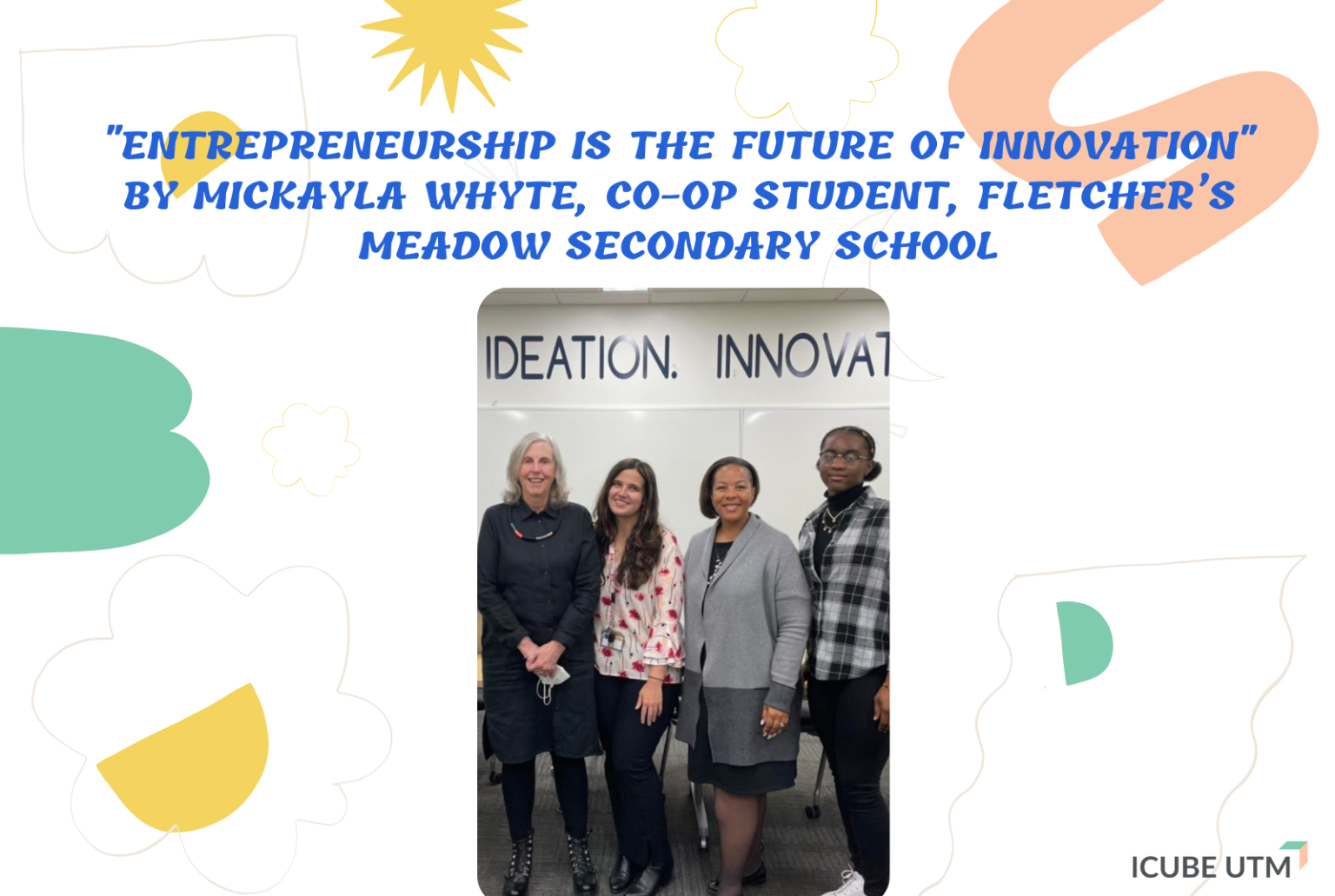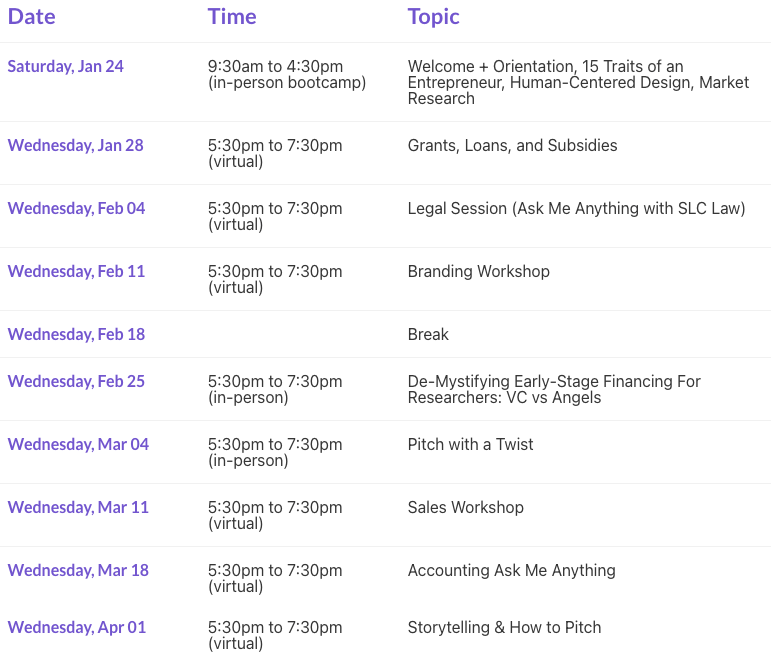By Mickayla Whyte, Co-Op Student, Fletcher’s Meadow
This fall/winter I had the opportunity to participate in the SEE@UTM pilot program that ran at the University of Toronto Mississauga campus. As a part of this program, we had the opportunity to be placed in different departments on campus assisting our supervisors and learning about an array of different things. I was placed at ICUBE, which I knew nothing about. I soon learned that ICUBE is the hub for early-stage start-ups and social entrepreneurship at UTM (University of Toronto, Mississauga), providing tools, courses, events, and mentorship for anyone looking to make a difference in the world. They picture a community where starting a business is a possibility for everyone and a creative place where different leaders can produce ideas, work together, and have an influence. They think that for innovation to be effective, it must be done in a responsible, long-term manner that takes disruption into account. My supervisor, the lovely Ms. Kayla Sousa, provided me with the opportunity to learn about and engage with young entrepreneurs who took it upon themselves to create these amazing businesses and initiatives in hopes of making our world better. This blog post was done in hopes that I might utilize what I learn from these spaces and in turn educate my fellow peers about why entrepreneurship should be thought about as a valid career amongst young people and why studying entrepreneurship at an early stage would be helpful. So here we go!
The process of starting a business is called entrepreneurship. UTM is filled with entrepreneurs, an individual who starts a new enterprise, taking on most of the risks and reaping many of the benefits. The entrepreneur is frequently viewed as an innovator, a source of fresh concepts for products, services, businesses, and operational methods. Entrepreneurs are essential to any economy because they have the knowledge and drive to foresee requirements and sell viable innovative ideas. At UTM, innovators have the support they may require when taking this path. One of the resources that economists classify as essential to production is entrepreneurship. They usually write a business plan, hire staff, gather materials and funding, and provide the company direction and management. When starting their businesses, entrepreneurs frequently confront numerous challenges. The following three are recognised by many of them as being the most difficult: overcoming bureaucracy, recruiting talent, and getting funding.
UTM offers many programs and activities to help educate students about this career path. Such as pitch competitions, innovation and building challenges, and educational programs. A few things one might learn about is the diverse types of entrepreneurs and entrepreneurship. Just like everyone else, entrepreneurs have different personalities and objectives. Quickly scalable enterprises are what builders strive to create. By hiring the greatest expertise and seeking out the best investors, such people aim to establish a solid infrastructure. The capacity to see financial possibilities, jump in at the correct time, stick with a venture during its growth phase, then exit when it reaches its pinnacle are characteristics of opportunistic entrepreneurs. These businesspeople are focused on making money and amassing riches; thus, they are drawn to ventures that can generate recurring or recurring revenue. because they are trying to locate opportunities that are appropriate. Rare individuals known as innovators are those that create fantastic ideas or products that no one else has ever dreamed of. Consider Elon Musk, Nikola Tesla, and Bill Gates. These people focused their work on their passions, which led to business opportunities. The social impact of their goods and services is more important to innovators than financial gain. Many people are analytical and cautious. They have solid skill sets in a particular field that they have acquired through training or an apprenticeship. In contrast to a builder entrepreneur, a specialist entrepreneur will expand their business through networking and recommendations, which will result in slower growth.
So, for anyone interested in taking risks, being your own boss and changing the world. You can find all this, and more waiting for you at UTM. The U of T Entrepreneurship community spans all three campuses and includes more than ten accelerators and incubators. Its entrepreneurial activities draw on the many advantages of a university with a strong international reputation to offer a staggering array of distinctive services to established and aspiring innovators. You can find creative, well intentioned, brilliant creators and thinkers in your classrooms, posing as students and teachers, in your communities, posing as friends and neighbours, in your families, posing as mothers and daughters and especially at UTM posing as the future leaders of tomorrow. So here ends my journey into entrepreneurship, for now at least. To conclude I would like to share some advice for our future innovators and entrepreneurs. These tips, tricks, and things to remember come to us from all the lovely and successful entrepreneurs and businesses that I have had the pleasure of speaking with during my time at UTM.
- Education is a lifelong thing.
- Read, Research and Reflect!
- Great people have great ideas.
- Network!
- Find Mentors.
- Manage your time and emotions.
- Engage with your community!
- Adaptability, resilience, time, and patience is key!
- Identify problems that people, and the planet are facing.
- Try and solve problems that you are passionate about.
- Find creative solutions!
- Help and serve the community.
- Hold on your passion.
- Connect with people.
- Find your purpose!
- Be persistent!
- Keep at it!
Below is a video of various students, teachers, and entrepreneurs who also weighed in on this important topic.
References
https://www.investopedia.com/terms/e/entrepreneur.asp
https://www.hive.org/world/greatest-innovators/


